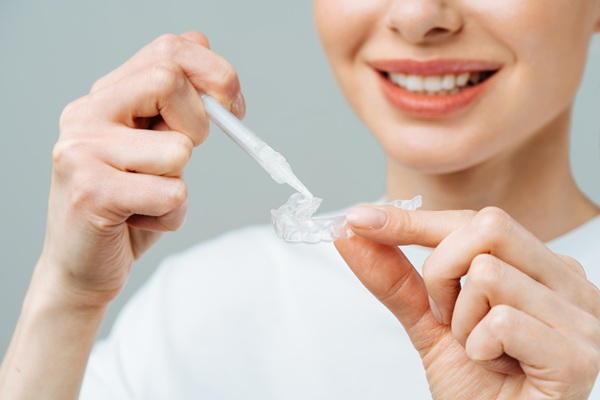How Soon Can I Use Toothpaste After a Tooth Extraction?
The idea of having to get a may spark anxiety in patients, however, they are often necessary in order to restore good oral health. While the extraction itself can cause discomfort, the part that patients should get familiar with is the healing process. After the procedure is complete, the wound will have to heal properly.
Certain steps must be taken in order to promote proper healing and comfortable recovery. One of these steps is oral hygiene, which often gets overlooked after an extraction. With oral hygiene comes the question of toothpaste and when it can be used once a tooth has been pulled. Keep reading to learn more.
About tooth extraction aftercare
Below is a quick overview of care after a tooth extraction, including how quickly toothpaste can be used. This information can be helpful to those who are preparing for an extraction but are not sure what to expect afterward.
When is it safe to use toothpaste after an extraction?
While it can be easy to skip oral hygiene for the first couple of days, it is highly recommended to continue it, no matter what. The wound and entire oral cavity are both extremely susceptible to infection after tooth extraction, which makes it necessary to rinse, brush, and floss as normal. However, dentists do recommend adjusting the oral hygiene routine a bit.
Many people want to know how quickly they can use toothpaste after tooth extraction. Toothpaste can be used the night after tooth extraction, however, less is more in this situation. Dentists also advise using a gentle kind of toothpaste that does not contain extra fluoride or whitening agents. These can be harmful to the wound while trying to heal. Instead, a small amount of toothpaste should be used to gently brush around the wound where the tooth was extracted.
As for the rest of the teeth, a regular amount of toothpaste should still be used as normal. This ensures that the teeth and gumlines remain healthy even after tooth extraction. A soft-bristled toothbrush should be used to ensure comfort and little to no irritation.
Other aftercare tips
Aside from a gentle and small amount of toothpaste, dentists also recommend that patients rinse the oral cavity with salt-water. Mouthwash can be strong and too rough on the recently made wound, which can result in irritation and further discomfort. Salt-water is gentle and natural but still effective for disinfecting susceptible wounds.
Additionally, it is helpful to avoid hard or tough foods immediately after tooth extraction and to use a cold or ice pack a few times a day. This can reduce inflammation and discomfort, both of which are common side effects of tooth extraction.
Learn more from a dentist
Preparing for an upcoming tooth extraction? It can be difficult to know exactly how to recover, which is why consulting with a dentist is recommended. The dentist can answer questions and go over concerns that patients have regarding the procedure and aftercare. Reach out today to find out more.
Request an appointment here: https://memphisfamilydental.com or call Dental Partners Brookhaven at (901) 562-0510 for an appointment in our Memphis office.
Check out what others are saying about our dental services on Yelp: .
Related Posts
Tooth extraction may seem like a scary or daunting procedure. However, it is relatively safe and common, with a few potential complications. This guide will walk you through all the major steps to help put your mind at ease and make you more comfortable about any upcoming procedures.First, the dentist will administer an anesthetic. They…
A broken tooth can happen at any time — during sports, while eating, or from an unexpected fall. Regardless of the cause, an emergency dentist can help. Through prompt treatment, these dental providers offer an effective way to relieve pain and protect oral health. An emergency dentist can also help prevent complications like infection, nerve…
Wondering what an emergency dentist can do for you? Read on to learn more about this type of dental health professional. Dental emergencies can arise unexpectedly, causing significant discomfort and anxiety. An emergency dentist can help in such cases. They provide immediate care and relief by addressing urgent dental problems that cannot wait for a…
A strong relationship with a family dentist gives households a trusted partner in oral health. With regular visits, clear guidance, and practical tips, families learn how to protect their smiles through each stage of life. For instance, daily brushing and flossing, thoughtful food choices, and consistent professional care work together to reduce the risk of…


